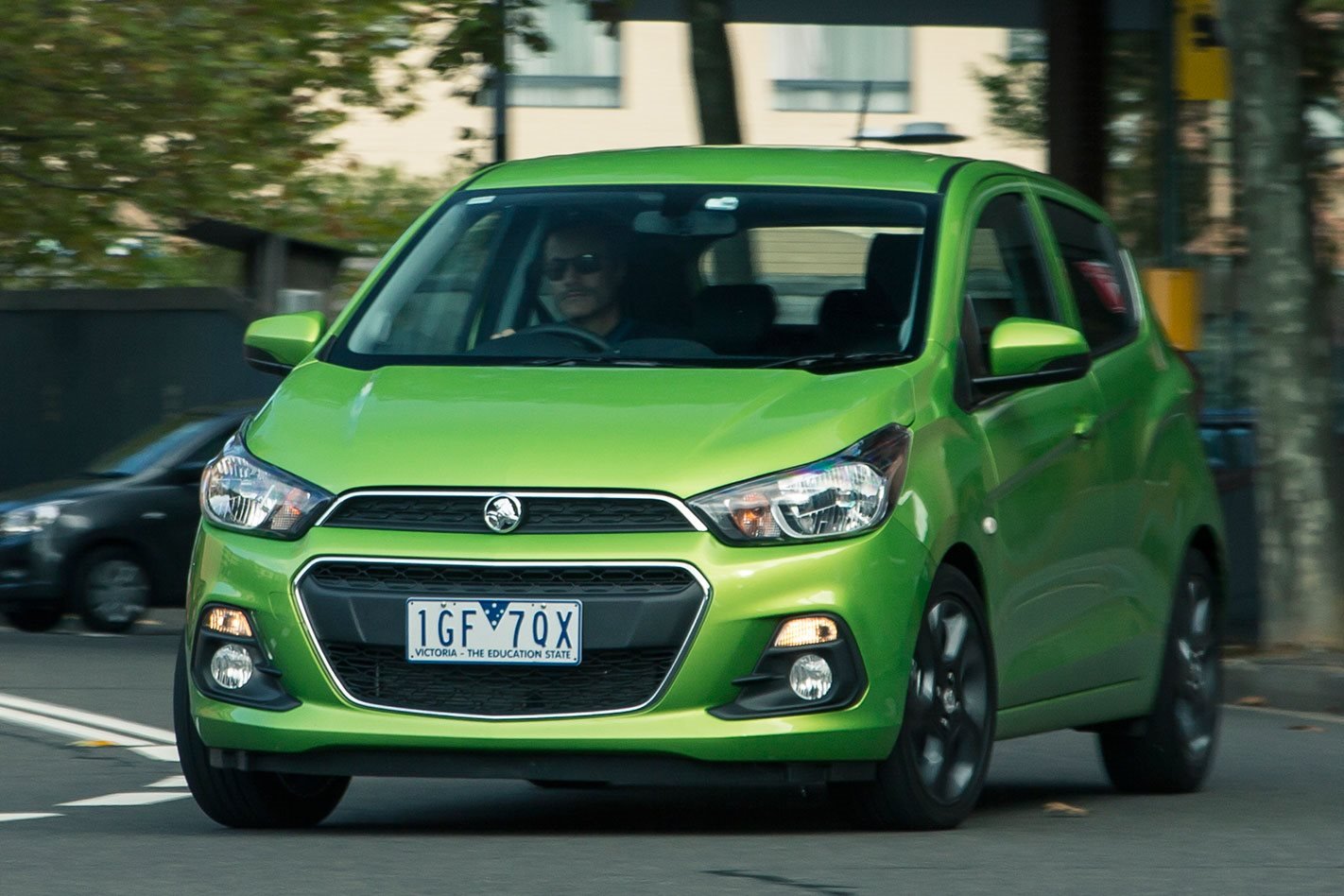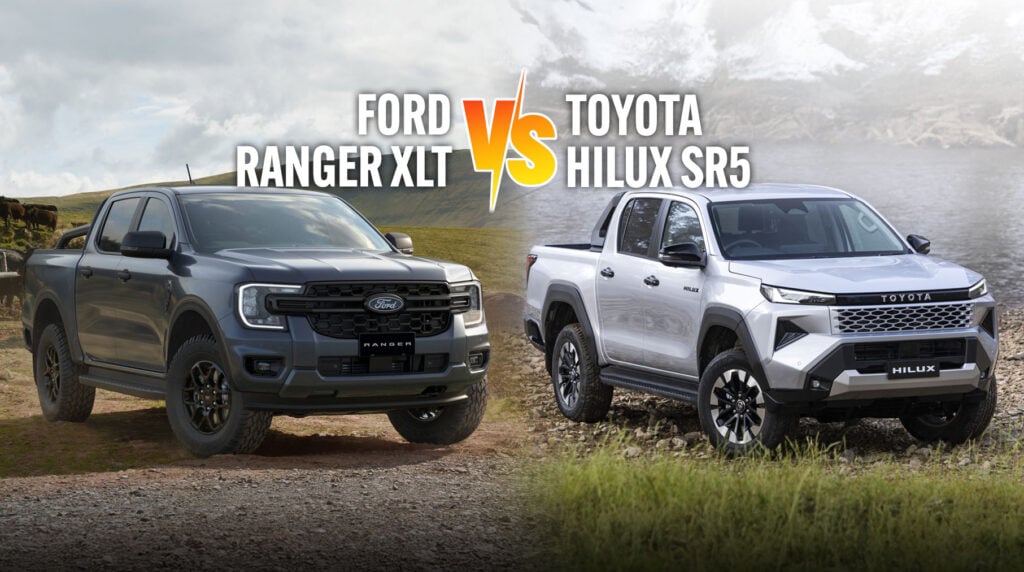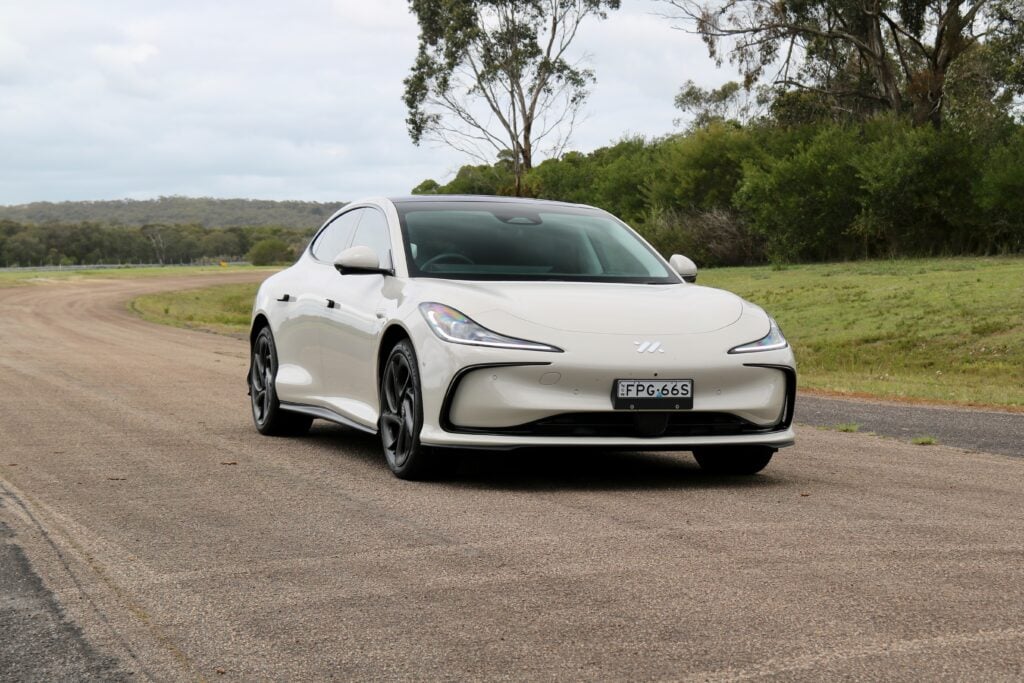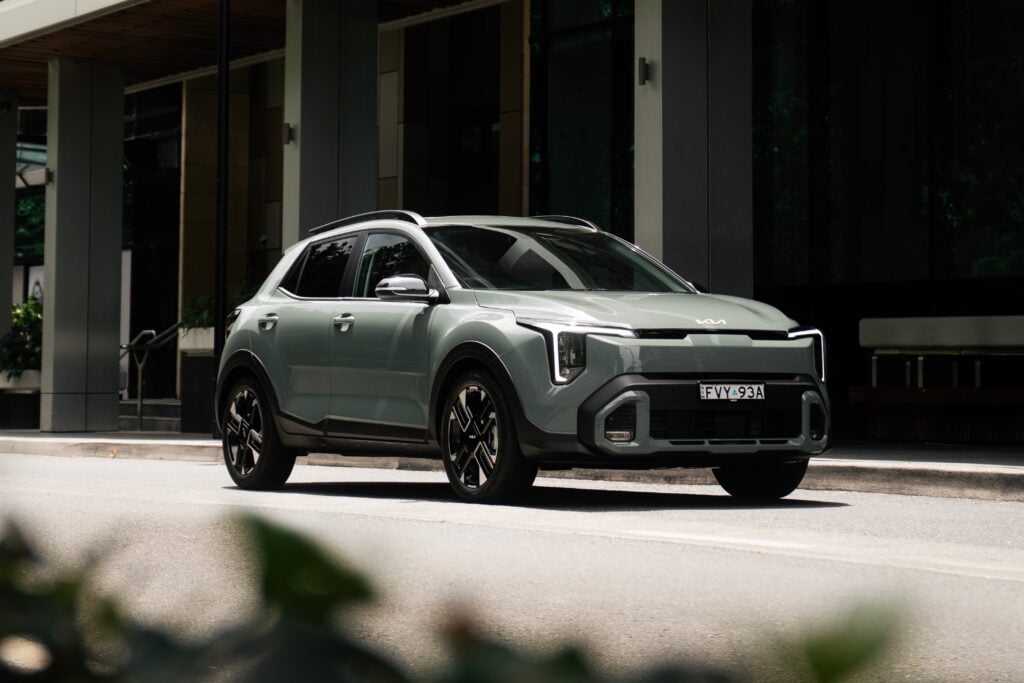
Score breakdown
Things we like
- Smartphone connectivity
- Handling
Not so much
- Fuel use
- Price
What stands out?
The Holden Spark is a tiny five-door hatchback that is easy to park and fun to steer around town. Unusually for a car of its size, it also feels composed and engaging on the open road. And it connects brilliantly with many smartphones, displaying their apps on its touchscreen through Apple CarPlay and Android Auto. The Spark arrived in April 2016 as an all-new model and was deleted from the Holden Range in April 2018.
What might bug me?
How much you’re spending on petrol. The Spark is a very small car, and its real-world fuel use is bettered by some cars a size or two bigger.
What body styles are there?
Just the one, a pertly styled five-door hatch. The rear door handles are semi-concealed, to create the visual illusion that the Spark is a sportier looking (but less practical) three-door.The Spark drives its front wheels, and is classed as a micro car.
What features does every Holden Spark have?
A 7.0-inch touchscreen for controlling interior functions, with Aux and USB inputs, and Bluetooth connectivity. A six-speaker sound system.Holden MyLink with Apple CarPlay and Android Auto, which allows you to display a compatible smartphone’s screen on the touchscreen and to use its apps (such as music and maps) from there.Cruise control. Controls on the steering wheel for the sound system and your phone.Daytime running lamps, which help other drivers see you.Power-operated side windows for the driver and front passenger.A space-saver spare wheel (it mounts a narrower tyre than the normal wheels, and has a recommended top speed of 80km/h when fitted).Hill-start assist, which controls the brakes automatically to make it easier for you to start from rest on uphills.Traction control, which prevents the front wheels from spinning when you accelerate on a slippery surface (and therefore helps you control the car).Electronic stability control, which helps you avoid or control a skid. Every new car must have this feature.Six airbags: two directly ahead of the driver and front passenger; one outside each front occupant to protect their upper bodies from side-impacts; and curtain airbags to protect the heads of occupants front and rear from side impacts.Every Holden Spark arrived with a three-year, 100,000km warranty.
Which engine uses least fuel, and why wouldn’t I choose it?
Only one engine is offered in a Holden Spark, a 1.4-litre four cylinder petrol. In auto gearbox form, it consumes 5.5 litres/100km on the official test (city and highway combined).In the real world, you can expect to use a fair bit more than that. An auto Spark LS averaged 8.5 litres/100km in comparison testing for the July 2016 issue of Wheels magazine, ranking as the thirstiest of three micro cars reviewed. (The middle ranked car for fuel use, a Kia Picanto auto, averaged 7.5 litres/100km.)The Spark’s engine is a new design and is made entirely from aluminium, to minimise weight.You can have a five-speed manual gearbox, or pay more for the automatic. The auto is a CVT (Continuously Variable Transmission). Rather than switching between fixed gear ratios, the CVT adjusts steplessly to the driver’s demands – which usually saves fuel and helps the car feel more responsive. Artificial steps mimic pleasantly the feel of a conventional auto when you accelerate hard.
What key features do I get if I spend more?
The least costly Spark, the LS, comes standard with cloth covered seats, the manual gearbox, and 14-inch steel wheels.Spend more for a Spark LT and you get seats covered in Sportec (a fake leather), and the auto gearbox as standard. You also get 15-inch wheels made from an aluminium alloy, which look nicer than steel wheels. These carry wider tyres, bringing a small gain in roadholding.The LT also brings you rear parking sensors, and a reversing camera. A sensor key allows you to unlock and start the car with the key kept safe in your bag or a pocket. The steering wheel is wrapped in leather, and power operation is added for the rear side-windows also.A Driver Assistance Pack is available for the Spark LS as an extra-cost option. It brings you rear parking sensors and a reversing camera – standard on the Spark LT.
Does any upgrade have a down side?
Not really. The bigger question is whether the extra equipment fitted to the Spark LT justifies its considerably higher price.Note that you can’t order the Spark LT with a manual gearbox.Standard colours in a Spark are red, white and lime green. All other colours incurred an extra charge of about $550.
How comfortable is the Spark?
Comfort is one of the Spark’s strong suits. It may be small but it doesn’t feel cramped. Adults in the front don’t feel like they are ever going to bump shoulders, and the design of the car’s glass area creates a sense of spaciousness.In a city environment it’s terrific. Visibility is mostly excellent, blighted only by the exterior mirror mounts at the base of the windscreen pillars. Controls are light and responsive, and the Spark responds eagerly to the accelerator when moving away from traffic lights. Its small size makes parking a snap.But it’s the way the Spark rides over rural Aussie roads which really impresses. Most cars this small struggle with sharp dips and undulations on the open road. The Spark has had extensive development in Australia to overcome this, and it shows. The wallowing common among city cars, where you bounce rapidly and uncomfortably on the suspension in response to an uneven road surface, does not appear. Nor does the Spark bump or jar excessively over ruts or sharp-edged potholes.Road noise levels are low for a car of this type, and wind noise is well suppressed. It all makes the Spark a pleasant car to cruise in away from its normal urban habitat.
What about safety in a Holden Spark?
The Spark has a good standard safety package, with stability control and a full suite of airbags. The standard traction control helps keep you in charge when it’s slippery, by preventing the front wheels from spinning (say, when you seek to accelerate away from traffic lights).Rather than fitting a reversing camera as standard on both models, Holden allowed buyers to pay extra for one if you want it on the less costly Spark LS. It also came with the Driver Assistance Pack, which also brings you rear parking sensors (which indicate audibly how close you are to an obstacle). The Spark LT has these items as standard.Autonomous emergency braking – which will brake automatically if you fail to notice that a car ahead has slowed suddenly – is not available on any Holden Spark.The Spark is a very small and light car, and there’s no denying physics when it comes to small object meeting large object.Nevertheless, the Australasian New Car Assessment Program (ANCAP) rated the Spark’s safety at five stars – its maximum score – in April 2016.
I like driving – will I enjoy this car?
Absolutely. The Spark drives with a level of verve and engagement that was nowhere to be found in its predecessor, the Barina Spark. This new car has light yet very direct steering that points it into corners eagerly, and inspires confidence when you hustle it along.The engine is a willing little worker, and there’s a general cheerfulness and spunk to the Spark’s on-road character that makes it extremely endearing.If there’s a recalcitrant side to the Spark’s personality, it might exhibit in the somewhat lazy response of the CVT auto to an increase in load – encounter a hill at open road speeds and it will take its time changing down.
How is life in the rear seats?
Surprisingly comfortable, even for adults. There’s ample legroom, enough space under the front seats to accommodate your feet, and a surprising amount of headroom.Only the slightly short rear bench, and corresponding lack of full under-thigh support, mars the back-seat experience.It’s designed for three back there, and has the belts to prove it, but that may prove a stretch for full-sized humans. Three sub-teens, though, no problem.Don’t be misled by Holden’s decision to conceal the rear door handles. Unlike several cars of this size, the Spark has dedicated doors for rear passengers – so that they can get in and out without your vacating and folding the front seats.
How is it for carrying stuff?
Noticeably inferior to cars slightly bigger, especially those with clever seating arrangements such as the Honda Jazz.The Spark does have 60/40 folding rear backrests, but they don’t fold flat, so any bulky items will have to be capable of being carried at a 30-degree angle.But for soft bags for a weekend away for two, or a decent haul of weekly groceries, it’s perfectly adequate
Where does Holden make the Spark?
Spark is a global car for General Motors (Holden’s parent company) but it was designed in the company’s studios in Korea. Cars sold in Australia were also built in Korea.
What might I miss that similar cars have?
Auto emergency braking, which is standard on the Kia Picanto, for example.Perhaps the more precise stopping you might get from disc rear brakes, which are fitted to the Picanto. (The Spark uses drum brakes at the rear.)Among other alternatives are the Suzuki Ignis micro-SUV, the Mitsubishi Mirage, and the Fiat 500.You could also look at slightly bigger cars such the Spark’s bigger sibling, the Holden Barina, or the Mazda2 and Toyora Yaris. The Honda Jazz would accept a lot more cargo.
Are there plans to upgrade the Spark soon?
The Spark went on sale in April 2016 as all-new car. For the 2017 model year Holden made cruise-control standard on all versions (it had been optional on the LS).Holden unexpectedly dropped the Spark from its range in April 2018 due to low demand. Any uncleared stock or previously-used, low-kilometre Sparks represent an excellent opportunity to secure a bargain.
I like this car, but I can’t choose which version. Can you help?
We reckoned the LS auto with the Driver Assistance Pack provided the best value when new. But, as pre-owned buys, you should get a good deal on both an LS or LT. Many used Sparks will still be under warranty until at least 2020, so choose a car with low kilometres and a complete service history.
Score breakdown
Things we like
- Smartphone connectivity
- Handling
Not so much
- Fuel use
- Price



